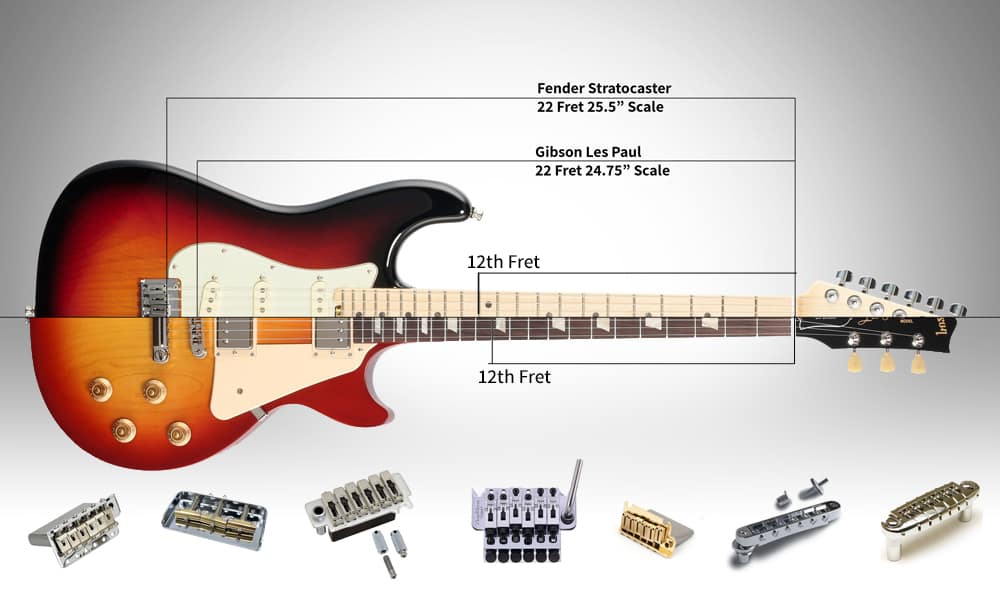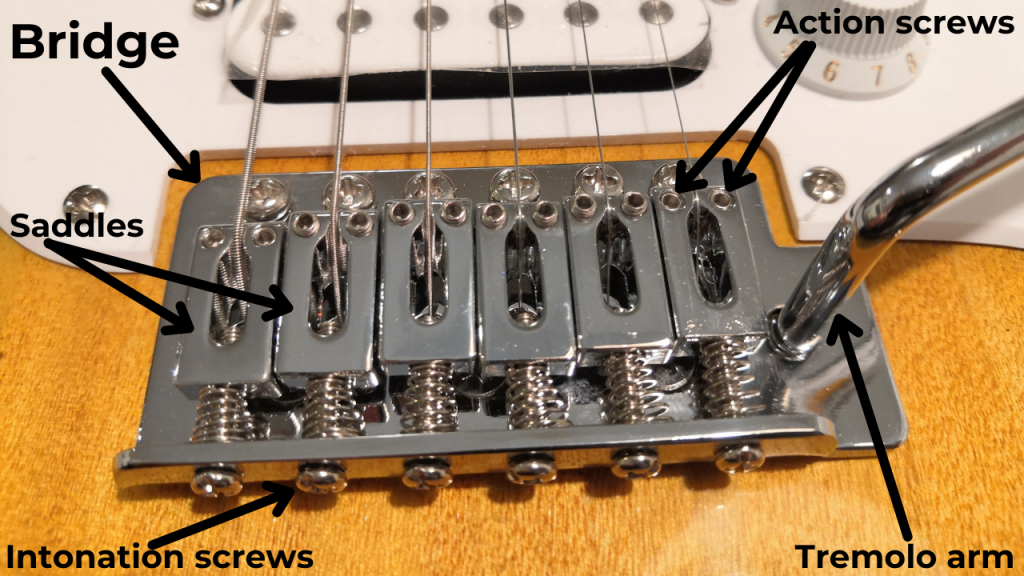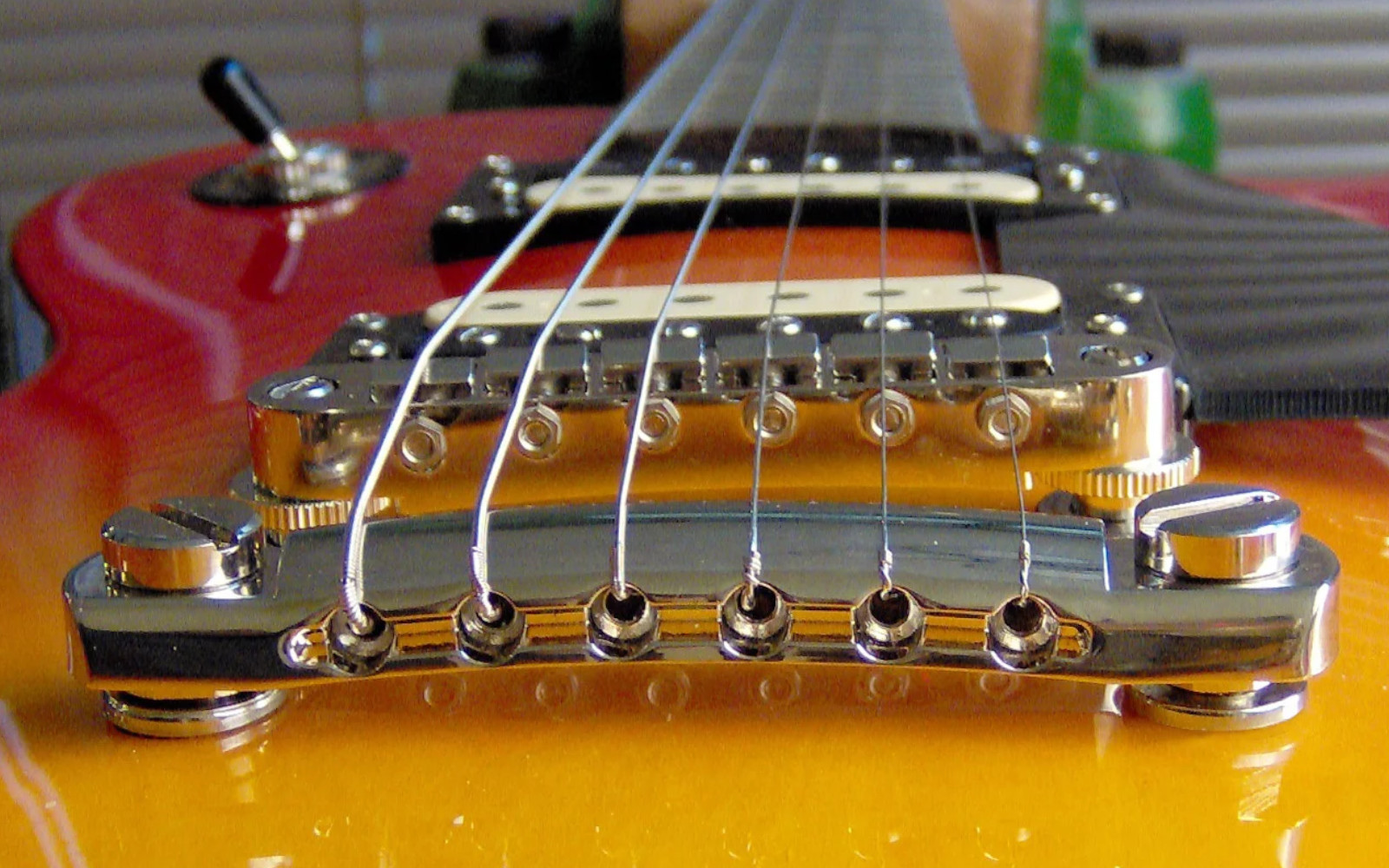Ebony Bridge: A Comprehensive Guide to Choosing the Right Bridge for Your Guitar

Well, if you’re a guitar player, or even just someone who knows a little bit about them, you’ve probably heard folks talk about ebony bridges before. You might have wondered, “What’s so special about these ebony bridges?” or “Do I really need one?” Let me tell ya, ebony bridges are a big deal in the world of guitars, especially when it comes to sound and durability. Now, let’s take a walk through what an ebony bridge really is, why it’s so important, and how it compares to other types like rosewood bridges.
What is an Ebony Bridge?
Now, an ebony bridge is just that—a bridge made from ebony wood, which is known for its rich, dark color and high density. It’s one of the most popular materials used in making guitar bridges, and for good reason! The wood is heavy and dense, which helps the sound vibrations travel better through the guitar body. This means that when you play your guitar, the notes ring out nice and clear, and the tone stays rich and full.
Why Choose Ebony Over Other Materials?
When you get into guitars, you’ll hear a lot of talk about different kinds of woods. Now, folks will always argue whether a rosewood bridge is better, or if maple or spruce might be the way to go. But here’s the thing: it’s all a matter of choice, just like picking between scalloped or straight bracing. Ebony, however, stands out for a few reasons:
- Durability: Ebony is a hard, dense wood that doesn’t wear down easily. It holds up well over time, even if you play your guitar every single day.
- Sound Quality: The density of ebony helps to transfer sound vibrations better than some of those lighter, cheaper materials. You’ll notice a richer tone with crisp lows and bright, chimey trebles.
- Aesthetic Appeal: Ebony’s deep black color looks sleek and classy. It can really make your guitar stand out, whether it’s on an acoustic or an electric model.
Ebony vs. Rosewood Bridges: Which is Better?
This is a real hot topic among guitar players. Both ebony and rosewood are great options for a guitar bridge, but they each have their own qualities. As I mentioned earlier, ebony is denser and harder than rosewood. That means it provides a stronger and more stable platform for sound vibrations to travel through. But rosewood, well, it’s a bit warmer and mellower, which some folks like for a more relaxed, smooth sound.
So if you’re after bright, punchy mids and chimey highs, an ebony bridge might just be the ticket for you. But if you’re looking for a bit of warmth in your tone, then rosewood might be a better choice.

The Benefits of Ebony Bridge Pins
While we’re talking about ebony, let me tell ya, it ain’t just about the bridge itself. Ebony bridge pins are another game-changer. Now, these little guys might seem insignificant, but they can make a big difference in the tone of your guitar.
See, ebony bridge pins help to transfer the vibrations from the strings to the body of the guitar, and because ebony is so dense, it does this job real well. It gives you that bright and punchy sound, especially when paired with mahogany. Mahogany tends to brighten up your sound, so adding ebony pins helps to bring out the crisp lows and vibrant highs. So, if you’re serious about getting the best sound outta your guitar, those ebony bridge pins are worth considering!
Choosing the Right Ebony Bridge for Your Guitar
Now that you know what makes ebony bridges so special, you might be wondering how to pick the right one for your guitar. Well, it depends on a few things, like the type of guitar you have, and what kind of sound you’re looking for. Here’s what I’d suggest:
- Acoustic Guitars: Ebony bridges are often favored on acoustic guitars because of how they enhance the tonal qualities of the instrument. The clarity and projection that ebony provides is ideal for acoustic music.
- Electric Guitars: While less common, you might find some electric guitars with ebony bridges, especially on higher-end models. It helps to improve sustain and tone quality.
- Consider the Weight: Ebony is heavy! So, if you’re used to a lighter guitar, this might take some getting used to. But trust me, the payoff in sound quality is worth it!
Where to Buy Ebony Bridges
If you’re thinking about upgrading your guitar with an ebony bridge, there are plenty of places to look. You can find high-quality ebony bridge blanks and parts at specialized guitar parts stores or online. Many of these bridges come in premium grade, so you don’t have to worry about getting something that’s not up to snuff. Just make sure to get a good one that’s kiln-dried to prevent any future cracking or warping.
Final Thoughts

Well, there ya have it. Whether you’re looking to replace an old, worn-out bridge, or just want to give your guitar that extra bit of oomph, an ebony bridge could be just what you need. It’s durable, it sounds great, and it’ll give your guitar that professional edge. Of course, it’s all about what sound you’re after, but ebony’s reputation speaks for itself.
So go ahead, take a look at those ebony bridges and see if they’re the right fit for your guitar. You won’t regret it—your instrument will sound better than ever!
Tags:[Ebony Bridge, Guitar Bridge, Acoustic Guitar, Ebony vs Rosewood, Guitar Tone, Bridge Pins, Guitar Parts, Ebony Pins, Guitar Sound, Musical Instruments]



















